Norman Hunter: The Elland Road hard man who helped turn Leeds into a powerhouse
Norman Hunter #NormanHunter

His unflinching tackles earned him the nickname ‘Bite Yer Legs’, but there was more to the former Leeds and England defender than that.
Hunter, whose warmth and friendliness off the field belied his teak-tough reputation on it, won the Professional Footballers’ Association’s inaugural Players’ Player of the Year Award at the end of the 1973/4 season and the honour remained his personal high point in a trophy-laden playing career that spanned 20 years.
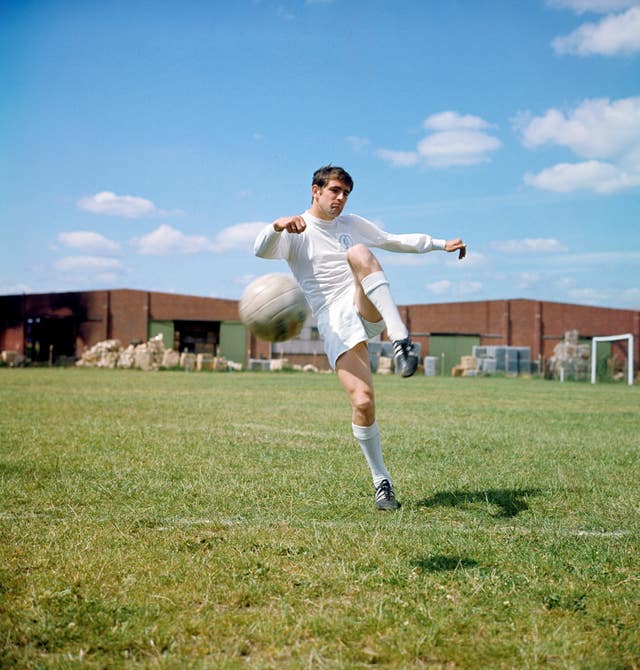 Norman Hunter spent a hugely successful 16 years at Leeds (PA)
Norman Hunter spent a hugely successful 16 years at Leeds (PA)
He was one of the most accomplished centre-halves of his generation during a 16-year spell at Leeds and won two Division One titles, the FA Cup, the League Cup, two UEFA Cups and the European Cup Winners’ Cup as well as earning a European Cup runners-up medal with one of the great English club sides.
He was also included by Sir Alf Ramsey in two England World Cup squads – he won 28 caps – and had a winner’s medal from the 1966 final at Wembley.
Hunter was born in Eighton Banks, Newcastle, on October 29, 1943 and was named after his father, who had died a couple of months earlier.
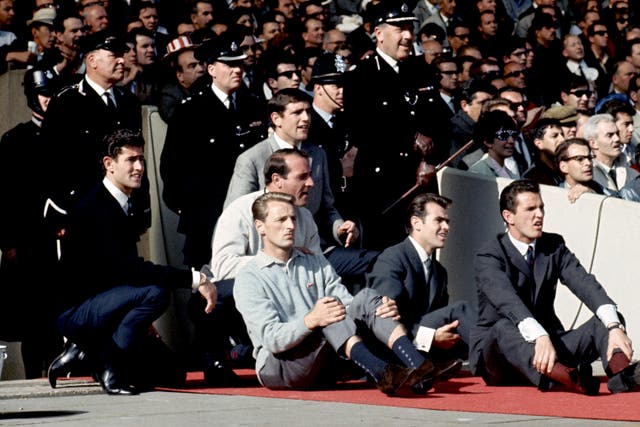 Hunter (top) watches the 1966 World Cup final from the sidelines (PA)
Hunter (top) watches the 1966 World Cup final from the sidelines (PA)
Norman junior and older brother Robert were brought up by their mother, Betty, and two football playing uncles, Bill and Frank, who were ardent Newcastle supporters.
Hunter inherited their passion for the game and his hometown club, but was a scrawny schoolboy and early honours eluded him. So too did an invite to trial with either Newcastle or Sunderland.
After leaving school at 15 without any qualifications he was offered a job as an electrical fitter and it was while playing his football as a forward for local side Birtley Juniors that Hunter was scouted by Leeds.
His progress at Elland Road was steady, but following the appointment of Don Revie as the club’s player/manager in 1961 that was soon to change.
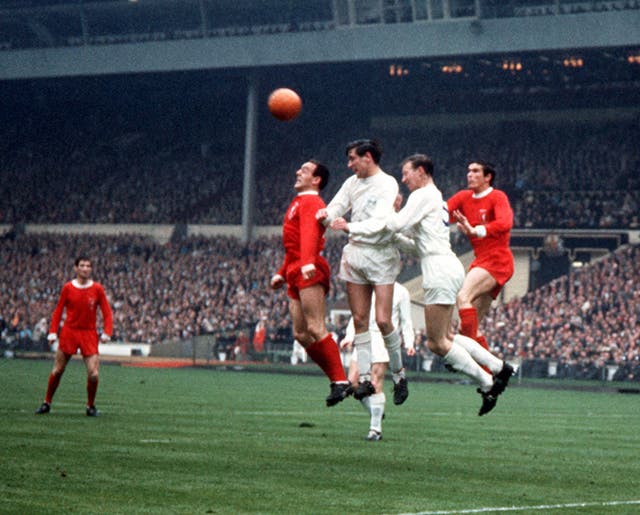 Hunter formed a formidable defensive partnership with Jack Charlton at Leeds (PA)
Hunter formed a formidable defensive partnership with Jack Charlton at Leeds (PA)
Leeds’ coaching staff believed Hunter’s combative attributes were better suited to a defensive role and the switch to centre-half in a reserve-team game proved a masterstroke.
Revie had found a new partner for Jack Charlton and Hunter never looked back.
He made his first-team debut at Swansea aged 19 in 1962 and four years later was on the bench at Wembley as understudy to Charlton and Bobby Moore when England won the World Cup.
Hunter was integral to Revie’s revolution at Elland Road and the club returned to the top flight as Second Division champions in 1964.
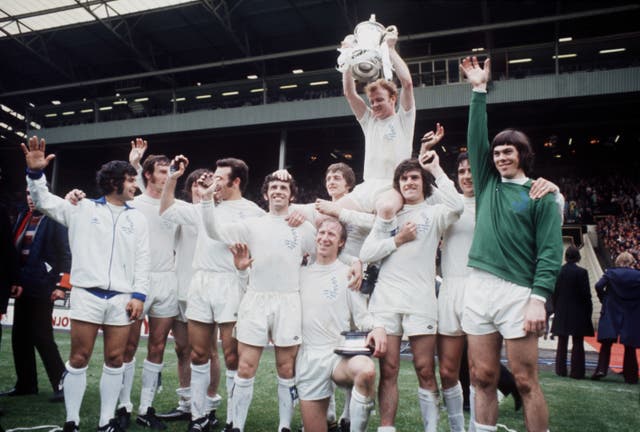 Leeds celebrate winning the FA Cup after victory over Arsenal (PA)
Leeds celebrate winning the FA Cup after victory over Arsenal (PA)
In each of the 10 seasons that followed Leeds were in the shake-up for major honours as Revie transformed them into a force to be reckoned with and Hunter was a virtual ever-present.
Leeds never finished outside the top four from 1964 to 1974, were crowned Division One champions twice, in 1969 and 1974, and were runners-up on five other occasions.
During that golden era Revie’s side were often the bridesmaids. Hunter added an FA Cup winner’s medal to his collection in 1972, but was on the losing side in three other finals and, although Leeds won the UEFA Cup in 1968 and 1971, they came up short against Bayern Munich in their European Cup final defeat in 1975.
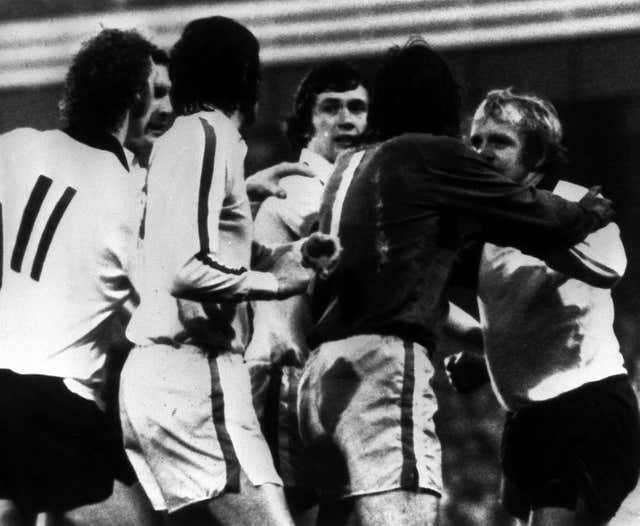 Hunter and Derby’s Francis Lee are separated by Leeds goalkeeper David Harvey (dark shirt) after they had exchanged blows (PA)
Hunter and Derby’s Francis Lee are separated by Leeds goalkeeper David Harvey (dark shirt) after they had exchanged blows (PA)
Hunter’s unquenching desire to win every challenge made him a striker’s nightmare, but he was also comfortable on the ball, while his anticipation and positional sense made up for any lack of genuine pace.
Despite his fierce reputation, the red mist rarely got the better of Hunter in the heat of battle.
But his notorious on-field punch-up with former Derby striker Francis Lee during a televised league game at the old Baseball Ground in 1975 earned him a red card and made headlines in the tabloid newspapers.
Another low point was his costly slip in a World Cup qualifier for England against Poland at Wembley in 1973. Ramsay’s side failed to qualify for the finals after being held 1-1 and Hunter, whose mistake directly led to Poland’s goal, was vilified.
Hunter feared that calamitous World Cup exit might define his career, but he was wrong.
He went on to help Leeds win their second league title at the end of that season and was rewarded for outstanding consistency when voted footballer of the year by his fellow professionals at the inaugural PFA player awards.
He bade farewell to Leeds in 1976 having made 540 appearances and spent a further three seasons in the top flight with Bristol City before ending his playing career at Barnsley in 1982.
His foray into management was initially successful. He guided Barnsley to promotion from the old Third Division as player/boss in 1981, but two forgettable years in charge at Rotherham ended in the sack in 1987.
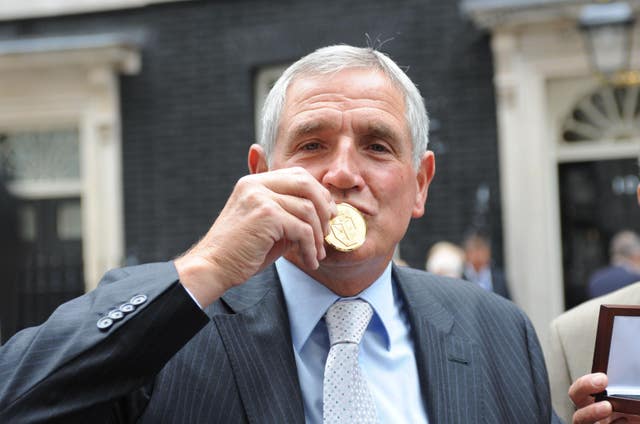 Hunter kisses his winners’ medal from the 1966 World Cup (Ian Nicholson/PA)
Hunter kisses his winners’ medal from the 1966 World Cup (Ian Nicholson/PA)
Hunter returned to Elland Road as coach under Billy Bremner and, when the latter was dismissed in October 1988, was installed as caretaker manager for three matches before the arrival of Howard Wilkinson heralded a new era.
In retirement, Hunter worked as match-day summariser for BBC Radio Leeds for 15 years from 1993 and remained a hugely popular figure at Elland Road.
The club opened the Norman Hunter Suite at the stadium in his honour in 2015, but his legendary status had long been secured.
He is survived by wife Sue, son Michael, daughter Claire and grandsons Sam, Max and Ted.